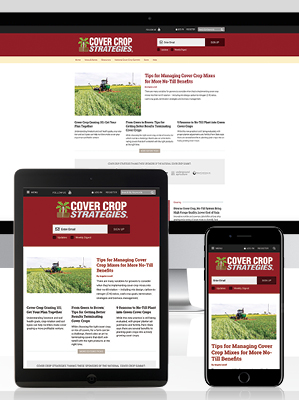Articles Tagged with ''nutrient management''
[Podcast] Cover Crops Need Planning for Weed Management
This week’s podcast, sponsored by NewLeaf Symbiotics, features Dan Smith, Southwest Regional Specialist with the University of Wisconsin-Madison. Smith will discuss the ideal seeding rate for cover crops when used for weed suppression, which cover crop species are better at weed suppression, how long covers should grow to be effective at weed suppression, and more.
Read More
[Podcast] Proper Soil pH an Important Factor for Crop Growth
This week’s podcast, sponsored by NewLeaf Symbiotics, features Daniel Kaiser, Nutrient Management Specialist, University of Minnesota Extension. Kaiser will discuss soil pH values for both corn and soybeans, the range of pH values for optimum crop performance, how growers can adjust their soil pH, and more.
Read More


.jpg?height=125&t=1651774346&width=150)


